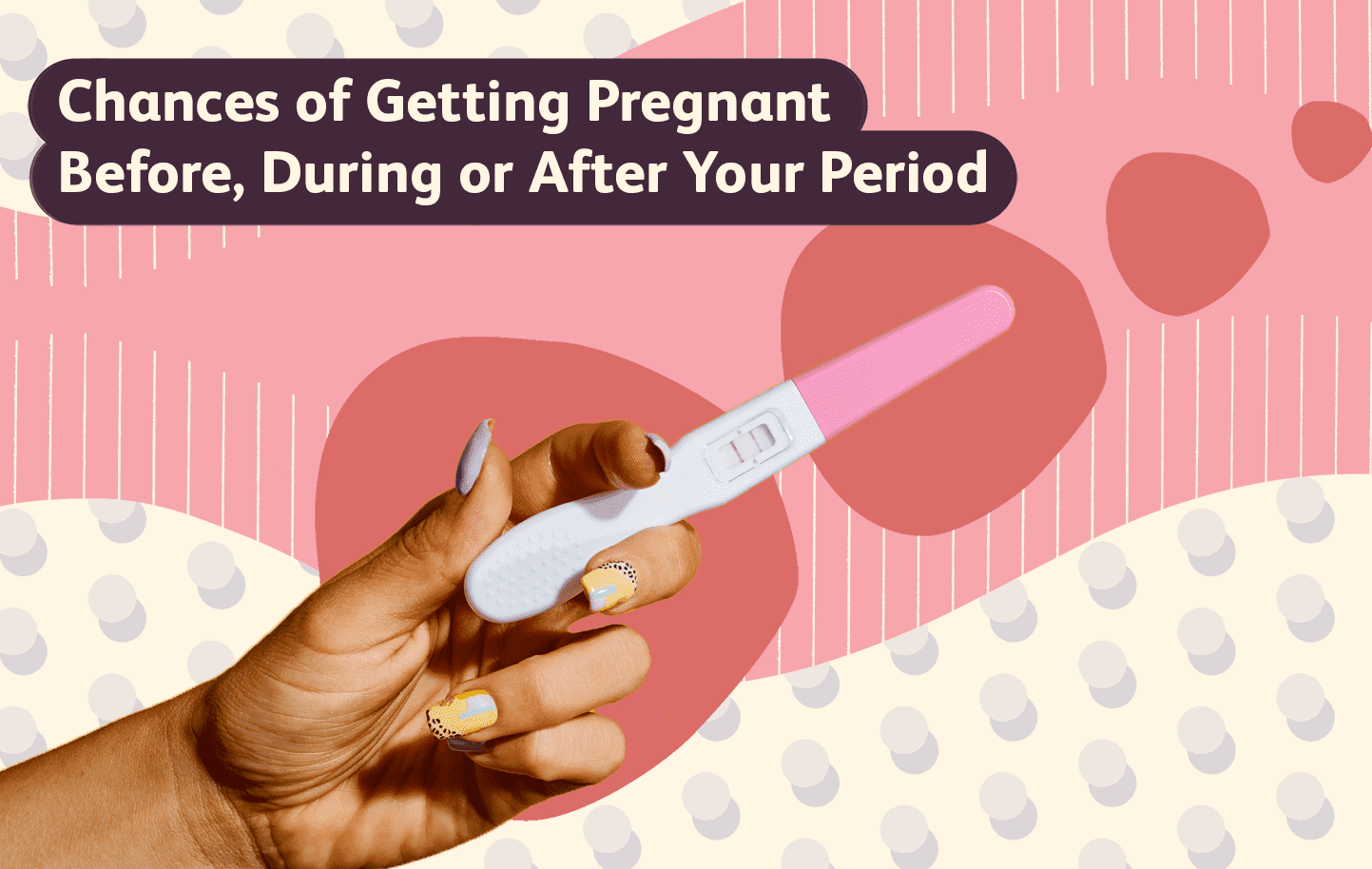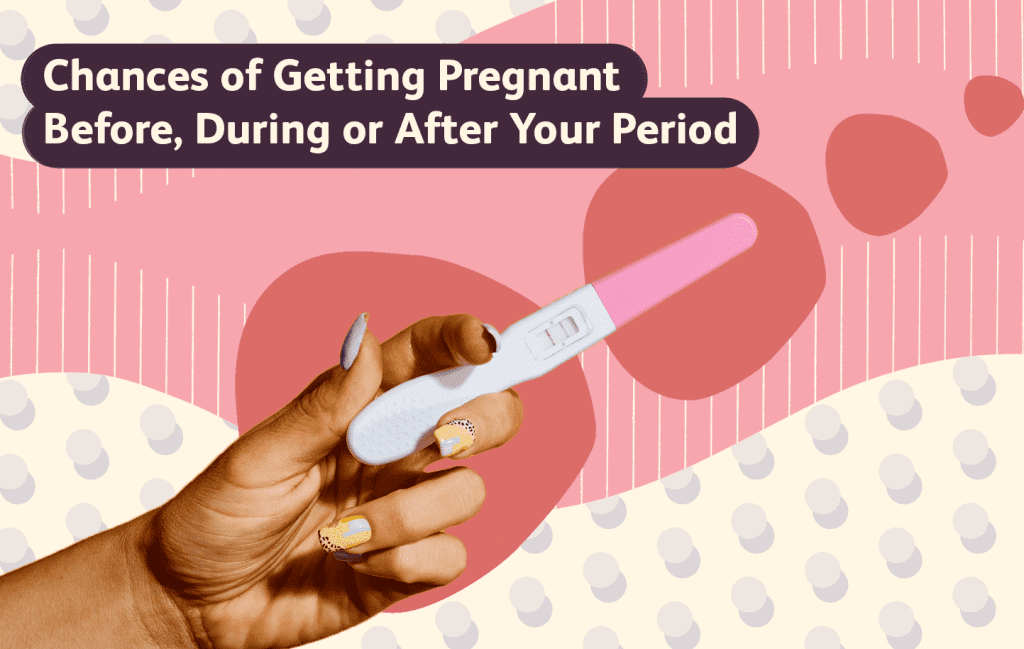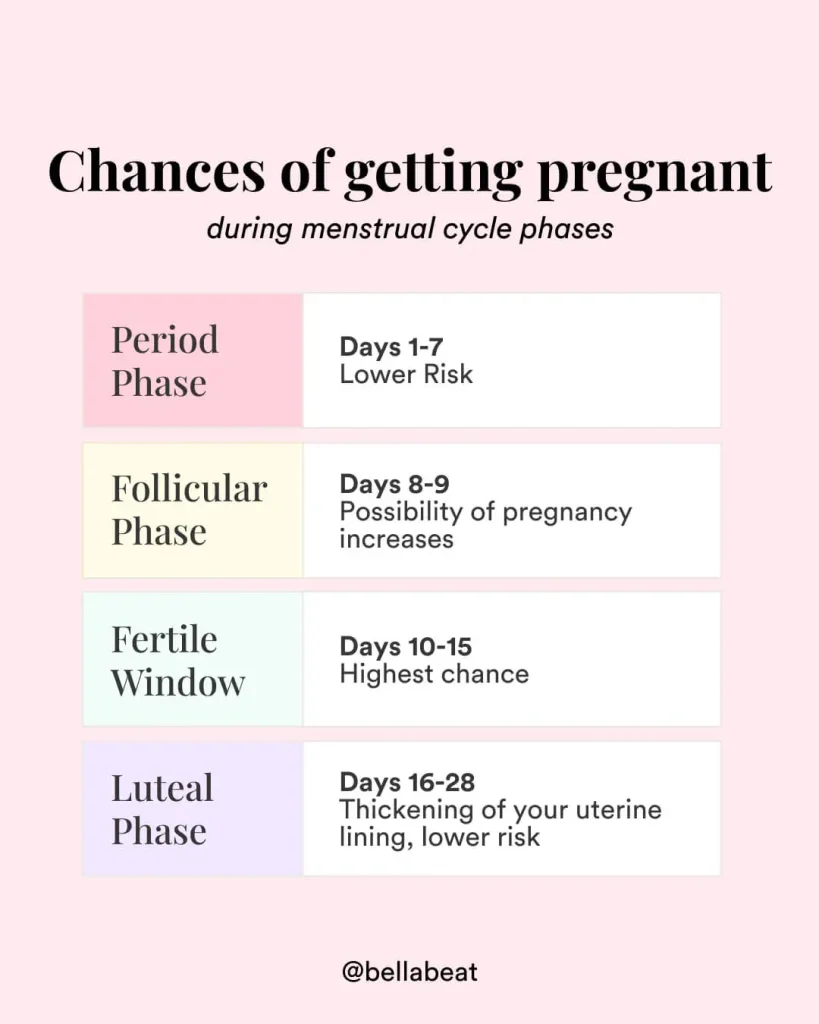Health
Can You Get Pregnant on Your Period? Myths, Facts, Insights

Can You Get Pregnant on Your Period? Many people believe that getting pregnant during a menstrual period is impossible. However, the truth is more complex, and the answer to whether you can get pregnant on your period is not a simple “yes” or “no.” In this article, we’ll dive into the science of the menstrual cycle, the conditions that make conception possible during a period, and other important factors that influence fertility.
Understanding the Menstrual Cycle
The menstrual cycle is a series of changes your body goes through every month to prepare for a possible pregnancy. Understanding how the cycle works can help you grasp when you’re most likely to conceive.
- Follicular Phase: Starts on the first day of your period and involves the thickening of the uterine lining and growth of ovarian follicles.
- Ovulation: Typically around the middle of your cycle, where a mature egg is released and awaits fertilization.
- Luteal Phase: After ovulation, the body prepares for a potential pregnancy. If no fertilization occurs, menstruation begins.


The key takeaway? Ovulation—the release of an egg—is the critical moment for conception, but sperm can live in the body for several days, making the fertility window a bit tricky to predict.
Can You Conceive During Your Period? Let’s Break It Down
Here’s the short answer: yes, it’s possible to get pregnant during your period, though it’s not as likely. There are several factors that make conception during menstruation possible. Understanding them can help you take steps if you’re trying to avoid pregnancy.
- Sperm Longevity: Sperm can survive in the female body for up to five days.
- Cycle Variation: Women with shorter cycles, irregular ovulation, or longer periods may have a slightly higher chance of conceiving during or right after their period.
How Ovulation Timing Impacts Fertility on Your Period
Since ovulation generally occurs about 14 days before the next period, most people assume that they’re “safe” during their period. However, if your cycle is shorter (say, 21-24 days), ovulation might occur soon after menstruation. Combine that with sperm survival of up to five days, and the chances of pregnancy increase even during menstruation.


Key Factors That Affect Pregnancy Probability on Your Period
- Irregular Menstrual Cycles: With unpredictable cycles, ovulation can occur at any time, making it difficult to determine “safe” days.
- Short Cycles (Less than 28 Days): Women with shorter cycles ovulate sooner after their period ends, making conception possible even from period intercourse.
- Spotting or Light Bleeding Misinterpretation: Sometimes, spotting can be mistaken for a period, potentially leading to an unintended pregnancy if it coincides with ovulation.
Can Sperm Survive During Your Period?
The short answer is yes, it can! Sperm’s survival depends on the environment in the reproductive tract:
- Sperm Longevity: Can last up to five days in favorable conditions.
- Protection in Cervical Mucus: Certain phases of your cycle make it easier for sperm to survive and move.
Planned Parenthood – Learn more about cycle tracking
Why Some People Are More Likely to Conceive During Menstruation
Each body is different. For example:
- Hormonal Imbalances can sometimes lead to “double ovulation” within the same cycle.
- Age: Younger women often have more hormonal fluctuations that can affect the timing of ovulation.
- Unique Physical Factors may make some people naturally more fertile than others.
How to Track Your Fertile and Safe Days
If you want to track your cycle more precisely, try:
- Basal Body Temperature (BBT): A slight increase in temperature can indicate ovulation.
- Calendar Tracking: Marking down period start and end dates can help spot patterns.
- Ovulation Kits: Over-the-counter tests measure hormone levels to detect ovulation.
Myths vs. Facts About Getting Pregnant on Your Period
There are many misconceptions about the “safety” of period sex. Let’s clear them up:
- Myth: You can’t get pregnant during your period.
- Fact: Pregnancy is unlikely but still possible, especially for those with shorter cycles.
- Myth: Periods cleanse the reproductive system, killing sperm.
- Fact: The reproductive tract remains a viable environment for sperm survival.
- Myth: Every woman’s cycle is the same.
- Fact: Cycles vary widely, making it essential to understand your body’s unique pattern.


What Do Doctors Say? Medical Opinions on Period Pregnancy Risk
Medical experts emphasize that while the probability is lower, it’s not zero. According to the Mayo Clinic, factors like irregular cycles and sperm lifespan mean there’s always some risk involved. Many doctors recommend using protection throughout the cycle to prevent unplanned pregnancy.
Precautions to Consider if You’re Not Planning Pregnancy
- Use Protection During Periods: If you’re not planning a pregnancy, contraception should be used consistently, even during menstruation.
- Consider Other Contraception: Long-term methods like hormonal birth control offer more reliable protection.
- Consult a Healthcare Provider: Regular check-ups and consultations can provide guidance tailored to your health needs.
Also Read : Dealing with Unexpected Encounters: When a Bird Just Shat on My Sisters Face
FAQs About Getting Pregnant on Your Period
- Can I get pregnant on the last day of my period?
- Yes, especially if your cycle is shorter or if ovulation occurs early.
- Is it possible to get pregnant right after my period?
- Yes, the chances increase as you approach your fertile window.
- How can I track my cycle effectively?
- Methods like BBT tracking, ovulation kits, and apps can be useful.
- What are the risks if I rely on my period as contraception?
- There’s still a risk, particularly for those with irregular cycles.
- Does having a heavier flow reduce pregnancy chances?
- Flow intensity doesn’t impact sperm survival; protection is key.
- Can I conceive with irregular cycles?
- Yes, irregular cycles make it harder to predict ovulation.
- Can a menstrual cup impact sperm survival?
- Sperm may survive regardless, so contraception is recommended.
- How does age affect chances of getting pregnant on my period?
- Hormonal fluctuations with age can impact fertility.
What Should You Do if You Suspect Pregnancy?
If you experience early pregnancy symptoms, here’s what to do:
- Take a Pregnancy Test: Home tests can detect pregnancy from the first missed period.
- See a Healthcare Provider: Confirming with a doctor ensures you receive early care if needed.
- Consider Early Symptoms: Symptoms like nausea, fatigue, and sore breasts may indicate pregnancy.
Conclusion
Getting pregnant on your period isn’t a myth—it’s a possibility, albeit a rare one. Knowing your cycle, understanding fertility, and taking precautions if you’re not ready for a family can help prevent surprises. Remember, using protection consistently and tracking your cycle effectively are essential tools for reproductive health.


-



 Mod1 year ago
Mod1 year ago10 Best Komban Bus Skin Download – Livery HD Download
-



 Mod1 year ago
Mod1 year ago55 Bus Simulator Indonesia Livery – HD Download
-



 Mod1 year ago
Mod1 year ago10 Best Tamil Nadu Bus Livery – Mod HD Download
-



 Life Style3 years ago
Life Style3 years agoLove Failure Images – 1000 Love hate images for download
-



 Blog1 year ago
Blog1 year ago100 Girls WhatsApp Number for Friendship and Chatting
-



 Mod1 year ago
Mod1 year ago10 Tamil Nadu private bus livery download
-



 Entertainment2 years ago
Entertainment2 years agoAll Movies Hub 2023 Download Latest HD Movies, Web Series
-



 Entertainment1 year ago
Entertainment1 year agoScam 1992 Web Series Download Google Drive HD










